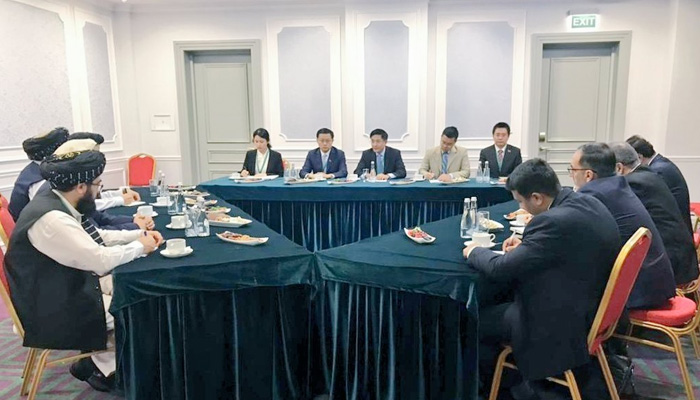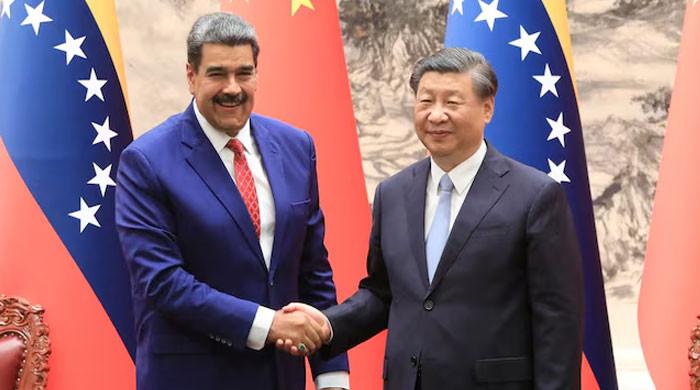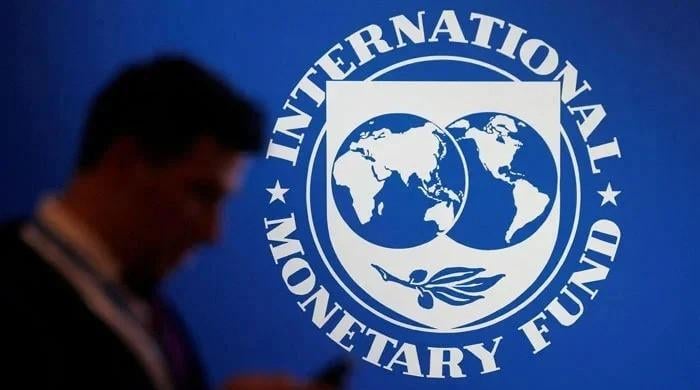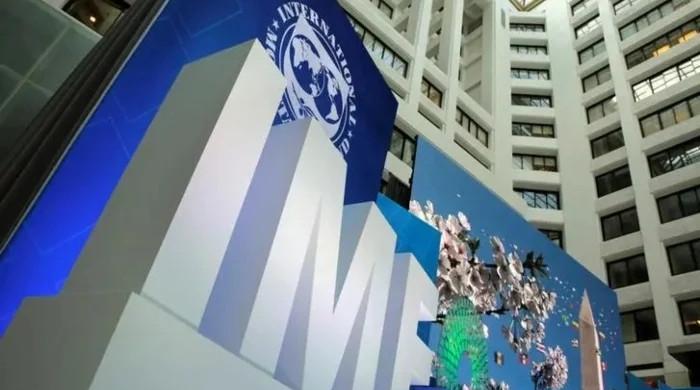Why China wasn’t serious for inclusive Afghan govt?
Afghanistan offers a lucrative link to expand Belt and Road Initiative and connect Central and South Asia
October 03, 2023

China has used Moscow Format platform to stress regional cooperation without foreign interference in the internal affairs of Afghanistan. It has urged United States of America to unfreeze Afghanistan’s assets, lift sanctions and encouraged Taliban to pursue an independent domestic policy that corresponds to its national conditions.
At the same time, Beijing has come to rescue Taliban from the international pressure for forming an inclusive government. Addressing Kazan meeting held on 29th-30 September, Chinese special representative to Kabul Yue Xiaoyong emphasised that, “Nothing should be an excuse for interfering in the internal affairs of a sovereign and independent country. The sovereign government, the sovereign state ultimately decides itself what to do with inclusivity and human rights.”
Beijing has not officially recognised Taliban as a government. It, however, sent Zhao Sheng as an Ambassador to Kabul last month. Regarding that development, China’s Foreign Ministry clarified that, “This is the normal rotation of China’s Ambassador to Afghanistan, and intended to continue advancing dialogue and cooperation between China and Afghanistan. China’s policy towards Afghanistan is clear and consistent.”
China shares approximately 92-kilometer border with Afghanistan. This narrow Wakhan corridor is enough to open multiple doors of opportunities to the largest neighbour of Kabul. Yet, the rugged terrain also serves Beijing as a matter of grave concern.
Keeping this in mind, Beijing has devised a two-pronged strategy for its neighbour. First and foremost, China wants peace in its backyard and seeks to stop infiltration of militants linked to East Turkestan Islamic Movement (ETIM) to its strategically sensitive province of Xinjiang.
In early 1990s, ETIM had attempted to carve out Xinjiang into an independent state for Uygur Muslims. It was only through decisive operation that Beijing could eliminate most of these separatist militants while others escaped to Afghanistan. Since 1998, that safe haven still exists, leaving China with little option but to court ideologically estranged Taliban.
After the fall of Kabul, China’s foreign ministry spokesperson Hua Chunying had admitted: “On the basis of fully respecting the sovereignty of Afghanistan and the will of all factions in the country, China has maintained contacts and communication with the Afghan Taliban and played a constructive role in promoting the political settlement of the Afghan issue”.
Beijing believes that the Afghan Taliban will eventually build a broad-based and inclusive government as this is the only recipe for enduring peace in an ethnically diverse country.
Yet, despite pressure from all quarters, there is no sign that an inclusive government will be formed as yet.
On the other hand, Taliban are trying to portray that they can tackle security issues even without taking different ethnicities on board. To reflect who rules Afghanistan, Taliban have relocated Uyghur militants from Badakhshan to as far as Baghlan and Takhar provinces.
Handing militants over to Beijing is a farfetched idea for such a step will open a Pandora’s box for all the neighbours including Pakistan who claim that Afghan soil is being used against them by Taliban-ally TTP.
China has financial interests as well. Afghanistan offers a lucrative link to expand Belt and Road Initiative and connect Central and South Asia. China can also be supplied with much-needed minerals to meet industrial demands.
However, these economic objectives can only be achieved if Taliban prove themselves to be a reliable partner in the development of their homeland and assure security.
In the last few years, some strange developments have taken place and that’s why Chinese footprint in Afghanistan is very limited and calculated.
For instance, Beijing had sought interest in Afghanistan’s mining industry. In 2008, China Metallurgical group secured 30 years lease to extract copper from The Mes Aynak mine. Yet, one issue after another hampered the dream investment.
It’s an open question how far Taliban will facilitate Beijing that continues to provide humanitarian aid. No doubt, they have re-approved Chinese industrial park in the outskirts of Kabul but providing security remains a challenge.
According to China’s special envoy to Afghanistan, Yue Xiaoyong, the Chinese leadership is ready to support the implementation of trans-regional projects, including the Mazar-i-Sharif-Kabul-Peshawar railway line and a railroad connecting Western China with Central Asia.
The question is how will Beijing ensures security of its BRI in Afghanistan when it is facing mounting challenge of securing CPEC projects in Pakistan.
Raffaello Pantucci, the senior fellow at the S Rajaratnam School of International Studies in Singapore paints a bleak picture for the Chinese investments. “Afghanistan is increasingly seen through the light of great power competition as merely another place where Washington and its proxies might undermine Chinese interests,” Pantucci said.
To tackle forces blocking Chinese interests in the region, Beijing had earlier held China-Afghanistan-Pakistan tripartite Foreign Ministers dialogue. It also embraced Afghanistan in its Shanghai Cooperation Organisation as an observer state.
Now, it has come to support Taliban to adopt domestic policy based on its national conditions. Moreover, when the world is stressing for inclusive government, Beijing has taken a much softer approach in that regard as well. Clearly, it’s a smart move to secure Chinese interests in Afghanistan. At the same time, it gives leverage to defend Chinese policies at home as well.
The author is Controller News at Geo News
Disclaimer: The viewpoints expressed in this piece are the writer's own and don't necessarily reflect Geo.tv's editorial policy.











